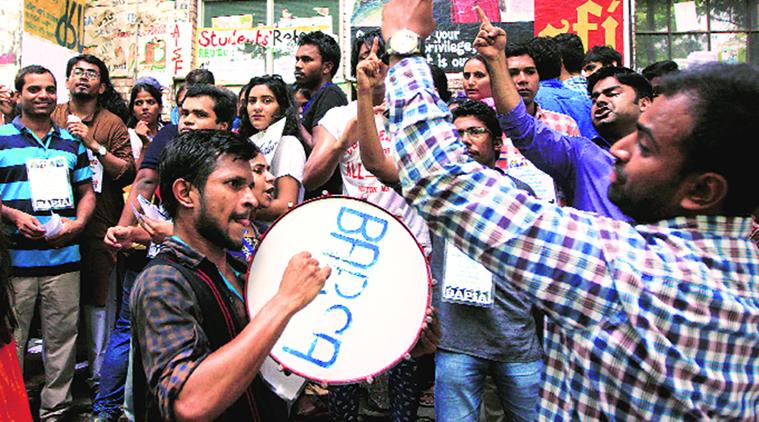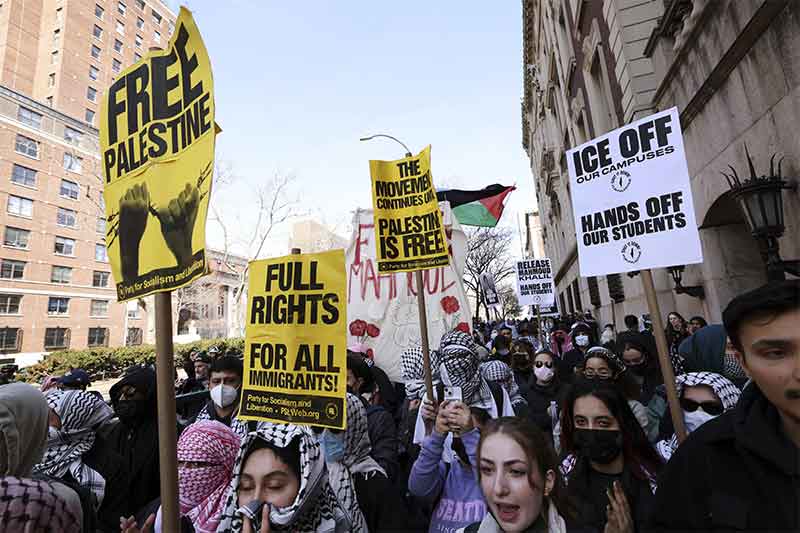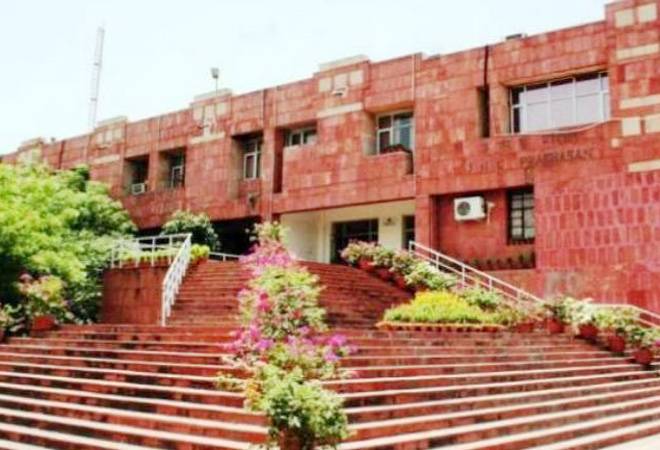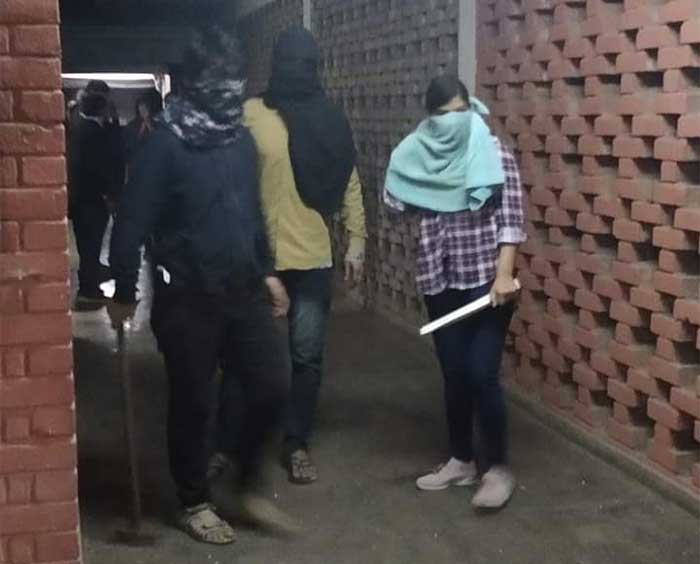
The last few months have seen unprecedented Dalit mobilisation throughout India against attacks by the Sangh fringe forces on Dalits and Muslims and the BJP leadership’s tacit and sometimes not so tacit approval at various levels. State machinery in the form of the Police were stationed on several University campuses with sedition cases against students in Jawaharlal Nehru University (JNU) in New Delhi being the most discussed. It is in this background that the recent ‘United Left’ victory in the JNU Students Union elections must be discussed. The United Left consists of the Students Federation of India (SFI) under the CPM and All India Students Association (AISA) under the CPI(ML). The two other major groups where the BJP’s Akhil Bharatiya Vidyarthi Parishad (ABVP) and the newbie that describes themselves as the ‘Unity of the Oppressed’, Birsa Ambedkar Phule Students Association (BAPSA). The victory of the United Left is clearly a statement that students of JNU do not appreciate the ABVP JNU Unit’s collusion with the actions of the Central government and the JNU administration, but the performance of the Rahul Sonpimple led BAPSA is notable in the larger context of Dalit Bahujan mobilisation throughout the country.
The issue of social justice cannot be left to the trickle down theories of the Sangh, the political appeasement of the Congress or the continuing irrelevance of the Left. The most noteworthy movements in the recent past against Sangh authoritarianism have been by the independent unions of marginalised workers in the industrial belts and the Dalit Bahujan movements outside of political parties. The rallying cries in the ‘Justice for Rohith Vemula’ movement that started with the Ambedkar Students Association (ASA) in the Hyderabad Central University (HCU) Campus, the Una movement and those in the election campaigns of BAPSA were clearly Ambedkarite in nature, the enemy is Brahminism whether it’s on the Left or the Right. There has been some legitimate criticism by Left activists that BAPSA and some other Dalit Bahujan groups’ Brahminic Left rhetoric seems to reach cynical proportions by equating it with the Right even if there is a clear change in some of the Left groups’ stance on caste. It is quite another matter that the Left’s engagement with caste has to go beyond ‘Lal Salaam, Neel Salaam’ sloganeering. The agency with which Dalit Bahujan groups are now taking on Sangh forces is quite frankly more effective than the Left and it is very clear to the outsider that the need for ‘Left-Dalit Bahujan Unity’ is more of a requirement for the political relevance of the Left rather than the Dalit Bahujan groups. For any such effective alliance for social justice to take place, there has be a more honest negotiation of power between the participating groups. An election victory for the Left in a University campus in Delhi is significant in the context of all that happened prior to it, but hardly ‘revolutionary’ especially when you consider BAPSA’s impressive performance and their clear ability to go beyond the cliched (and derogatory) ‘Dalit vote bank’ and ask for votes in the name of social justice.
If an effective counter to the Sangh forces in the name of social justice has to be forged as of this political now (which can easily change), it has to start from where the Dalit Bahujan groups have drawn the line. If there is a call for a political unity between the Left and Dalit Bahujan groups, the latter are well within their rights to stay away given the constant denial of agency that they have suffered. Having said that, it is also important for them to engage with the Left if Brahminism has to be countered. Though the mudslinging that goes on during election campaigns is inevitable, it is important for both groups to be honest with themselves about defining their ideas of social justice whether Marxist or Ambedkarite. The ideal has to be defined and there has to be a sustainable process of striving to achieve those ideals. The ideals must be strong enough to withstand the onslaught of the oppressor but also smart enough to negotiate political processes. A stubborn refusal to engage or to meet half way through will result in the loss of momentum for both political groups because whatever said and done, Brahminism has survived for a couple of thousand years at least, it cannot be fought alone and only a conscious endeavour to see beyond the everyday realpolitik will enable us to envision a better future and get us there.
Rohith Jyothish is a policy researcher from Thiruvananthapuram currently doing his PhD in JNU.














































